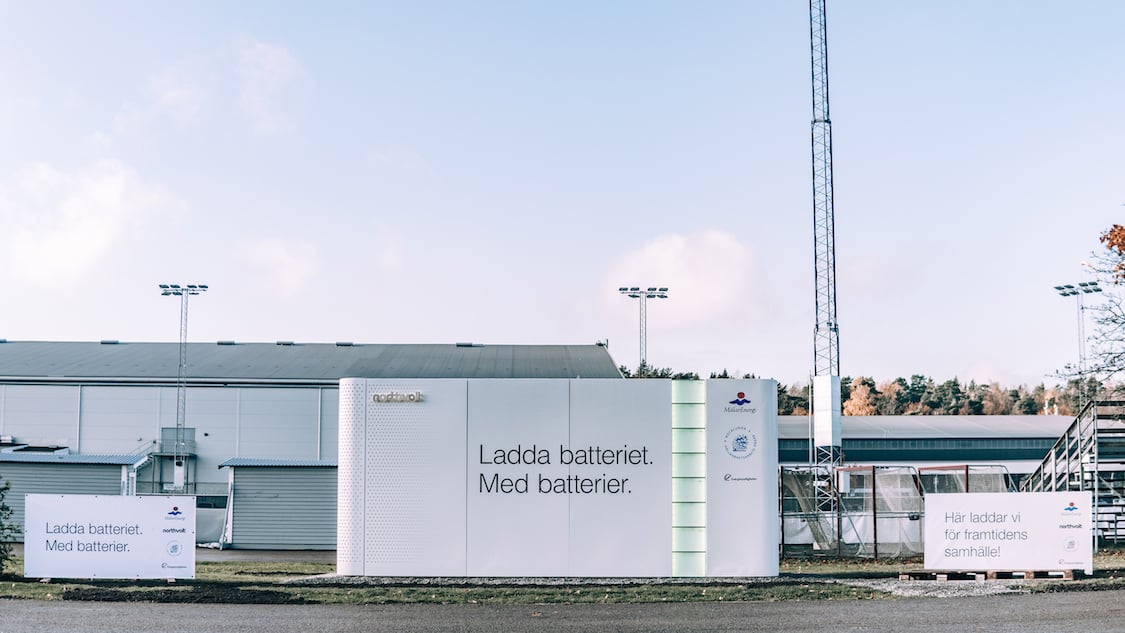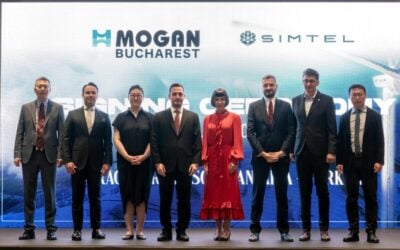
An order worth US$14 billion placed by carmaker Volkswagen with European lithium-ion battery manufacturer Northvolt will have a “significant” impact on the stationary energy storage market, a spokesman for Northvolt has said.
Germany-headquartered Volkswagen (VW) has been partnered with Northvolt since 2019, when a member of the auto company’s board said that VW was “laying the groundwork” for its electrification strategy and along with BMW Group and other parties became an equity investor in the startup.
Enjoy 12 months of exclusive analysis
- Regular insight and analysis of the industry’s biggest developments
- In-depth interviews with the industry’s leading figures
- Annual digital subscription to the PV Tech Power journal
- Discounts on Solar Media’s portfolio of events, in-person and virtual
Northvolt said earlier this month that it has been selected as strategic lead supplier to Volkswagen for premium battery cells in Europe with the massive new deal, which runs for 10 years. Northvolt is building out a gigafactory in Sweden, called Northvolt Ett, from which it plans to produce lithium-ion batteries with a low carbon footprint.
It had also been planning a large production facility (16GWh production capacity annually) in Saltzgitter, Germany, as a joint venture (JV) with VW: Northvolt said that its share of the JV has now been sold to VW, while VW’s existing equity stake in the battery producer has been increased.
While the deal is primarily likely to impact the electric vehicle (EV) sector, Northvolt spokesperson and VP of communications and public affairs Jesper Wigardt told Energy-Storage.news that the company has a “very strong outlook on the European energy storage market, to which we will be delivering significant volumes in the form of battery modules and packs”.
“In view of Northvolt’s recent supply order from Volkswagen, Northvolt Ett gigafactory will be significantly expanded beyond the 40GWh capacity we were targeting,” Wigardt said.
“To be distributed across several gigafactories, we’re aiming for 150GWh annual cell production in 2030 and we expect roughly 20% of those cell volumes to be committed to Northvolt Systems, with the majority of that directed to grid solutions.”
Northvolt claimed that, including the recent order, it now has US$27 billion worth of contracts from key customers. It has to date raised in excess of US$3.5 billion in investment, most recently closing a US$600 million private placement of equity financing which Energy-Storage.news reported on in September, and which was noted by financial analysis group Mercom Capital as making the company the biggest recipient of venture capital funding in the entire global battery storage sector during 2020. Along with the large volumes of battery cells and packs it intends to supply, the company, started by former Tesla executive Peter Carlsson, has a facility building and integrating energy storage systems in Poland which will have an initial production capacity for 5GWh of systems annually when it fully opens in 2022.
While VW will seek to build its own European supply chain at sites including Saltzgitter, Northvolt said that consolidating cell production at the Northvolt Ett site in Skellefteå, northern Sweden, will allow the manufacturer and its partners to achieve better economies of scale.
Jesper Wigardt told Energy-Storage.news that while Northvolt considers the supply agreement with VW to be a “major development on the European automotive industrial scene,” it’s also a deal that adds “great momentum” to the stationary battery storage industry – as well as being likely of benefit to “all applications and sectors that are adopting batteries as a new toolbox to enable the [energy] transition”.
“By expanding manufacturing capacity at Northvolt Ett we will leverage economies of scale to drive down the cost of cells and battery solutions further – this will have an impact on all customer segments,” Wigardt said.
“The expansion also means that more new cells will benefit from on-site recycling at Northvolt Ett, and we’ll be bringing to market more cells produced using one of the cleanest energy grids in the world.”
Production is scheduled to begin at the Northvolt Ett gigafactory later this year, the company aims to double its employee headcount during 2022 and invest in “new capacities across our organisation,” the VP of comms and public affairs said, with the VW deal putting the company on a financial footing for the future that he described as “robust”.
Also this month, Northvolt announced its acquisition of Cuberg, a US battery tech company spun out of Stanford University, designing and producing next gen lithium battery cells based on liquid electrolyte and lithium metal anodes. The technology is designed to be made on existing production lines for lithium-ion batteries and increase range and capacities dramatically.
While the company said that the acquisition will focus primarily on high-end automotive and aviation applications, a source said that having the capabilities to develop high-performance anodes in-house will likely present avenues to explore in other markets too. In neighbouring Norway, FREYR, another of Europe’s battery making start-ups at an earlier stage in its story than Sweden-headquartered Northvolt, and aiming to build about 36GWh of production capacity, is partnered with next generation lithium battery tech company 24M.
Both Nordic battery firms will be among the dozens of gigawatts of advanced battery and system production capacity coming online in Europe in the next few years, with European Commission VP for inter institutional relations and foresight Maroš Šefčovič recently asserting that Europe could be the world’s second-biggest producer of lithium-ion battery cells by 2025, after China. Šefčovič has long championed European supply chain development through the European Battery Alliance and the Commissioner said earlier this month that that initiative has already supported close to 70 industrial projects which could create four million jobs by that time.






